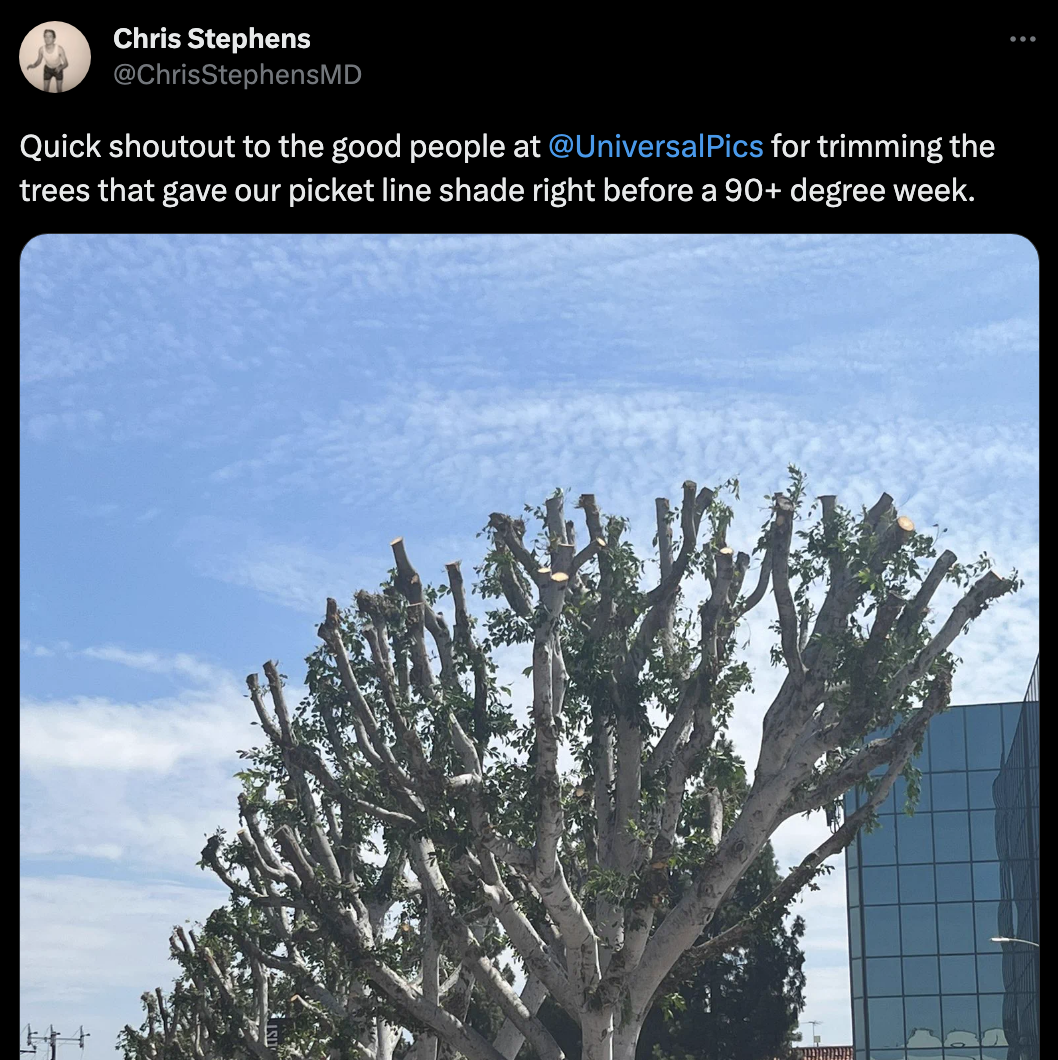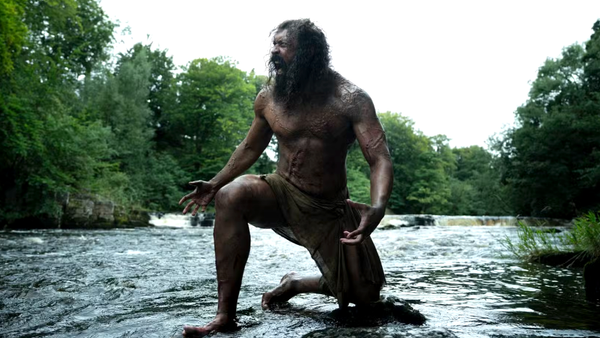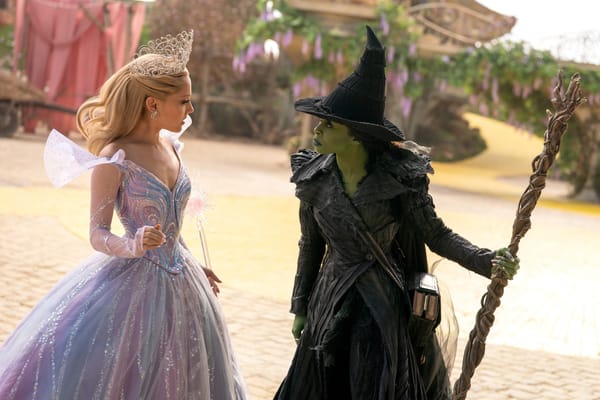Notable Cultural Moments from 100 Days of the Writers Strike
There's no end in sight.

This week, the Writers Strike passed a grim milestone: it has now been going on for over 100 days, which is officially longer than the last writers strike. One of the sticking points for that strike, which lasted until February 2008, was over residuals for “new media,” i.e. content that was made for the internet. Little did we know.
I’m old enough to remember the last strike and this one feels different. First of all, it really feels like the writers are winning the PR war. Whenever I check any of my social media accounts, I see non-stop support for the writers and what they’re demanding. The writers see themselves as the tip of the spear when it comes to labor issues in this country and the public is aligned with that vision.
It also seems like the writers are willing to make this thing go as long as necessary and they fully believe they will win. Writers have described the current Hollywood environment as so punishing that going 3, 6, 9 months without work feels par for the course. This is in stark contrast to the last strike, as screenwriter Howard Gould recently described:
At 100 days, 15 years ago, we were pushing it exactly as far as we could push it. I don’t think we could have made it to 110.
The other notable difference is that the acrimony seems much higher this time around. According to one VP at CBS, “I just see a 15-round slugfest here. See who falls.” Drew McWeeny describes the tone as follows:
What I don’t understand is how we ever find a middle ground with people who seem to wish we did not exist…There’s so much anger involved this time, and it feels punitive, like they want us to suffer if they’re going to have to make an eventual deal. I can’t imagine this wraps up before October or November, and if the AMPTP can’t come to the table before the holidays, that feels like the nuclear option, like they’re trying to destroy families and communities. At that point, I’m not sure I even want a deal with those people. At some point, you have to set aside your financial “obligations” to recognize the human component of the business we’re in. And if you can’t, then I’m not sure this is the business for you. Right now, Hollywood feels like it has been signed over for a wholesale dismantling, and they’re not going to rest until there’s nothing left of what we all signed up for in the first place.
I’ve been following the strike closely (I’d highly recommend and their newsletter for the latest) and on the occasion of the first 100 days, I thought I’d reflect on some of the biggest cultural moments that have happened since the strike began. This is not an exhaustive list - it’s just stuff that made an impact on me. Feel free to share your own in the comments below.
May 2 - The Writers Strike officially begins - 97.9% of the Guild votes to go on strike, immediately causing shutdowns of all late night TV shows, including The Tonight Show Starring Jimmy Kimmel, Saturday Night Live! and The Late Show with Stephen Colbert. At stake: minimum staffing requirements, residuals, and the use of AI. You can read the writers’ demands here.
May 21 - David Zaslav gets booed while giving a Boston University speech - In the first of several moments of studio executives feeling the heat of their own decisions, Zaslav was booed while giving the commencement speech at this year’s ceremony. Students turned their back on him and chanted “Pay your writers!” In a humiliating response, the President of BU decries the dangers of cancel culture.
July 11 - Deadline publishes an article describing the AMPTP’s negotiating strategy - The article in question contained brutal quotes that have been widely circulated and further motivated writers on the picket line and beyond. This paragraph does a good job of summarizing the AMPTP’s approach:
“The endgame is to allow things to drag on until union members start losing their apartments and losing their houses,” a studio executive told Deadline. Acknowledging the cold-as-ice approach, several other sources reiterated the statement. One insider called it “a cruel but necessary evil.”
The AMPTP responds and denies that these quotes are representative of their views. Actor Ron Perlman became so inflamed by the article that he made what appeared to be a threat against the executive quoted, before walking it back.
July 13 - SAG-AFTRA goes on strike - In an electrifying press conference, Fran Drescher paints the strike as a class war and expresses bafflement at how far apart the producers and the actors are on the issues. This marks the first simultaneous SAG/WGA strike since 1960. The stars of Oppenheimer walk off the location of the premiere as the work stoppage begins. Later, Bryan Cranston gives a speech at a SAG-AFTRA rally describing what’s at stake.
Also July 13 - Bog Iger gives disastrous interview to CNBC - In an oft-quoted interview that Bob Iger gave while at the Sun Valley billionaire retreat, Bob Iger used some strong words to describe how he felt about the guilds deciding to go on strike:
Well, I think it’s very disturbing to me. We’ve talked about disruptive forces on this business and all the challenges that we’re facing and the recovery from Covid, which is ongoing, it’s not completely back. This is the worst time in the world to add to that disruption…There’s a level of expectation that they have that is just not realistic and they are adding to a set of challenges that this business is already facing that is quite frankly very disruptive and dangerous.
Not a great look for someone who owns a 184-foot superyacht.

July 17 - Universal Studios illegally trims trees on its property - Trees that previously gave shade to picketers were abruptly and awkwardly trimmed, seemingly to make striking conditions more punishing. The shorn trees go viral on social media, summarizing in one image the state of the relationship between studios and picketers. Universal is fined $250 for its insouciance.
August 10th - The Emmys are officially delayed until January - Originally slated to air on September 18, the Emmys can’t function without the participation of writers and actors. But will they actually hit the new date?
TODAY - Writers and producers will return to the negotiating table again - Here’s hoping it goes better than the last meeting.
Thanks for reading Decoding Everything! Please consider subscribing (for free) to support me.
Other Stuff David Chen Has Made
- If you haven’t yet, do check out my interview with Curt Mega about what’s at stake for striking actors.
- On The Filmcast, we reviewed Teenage Mutant Ninja Turtles: Mutant Mayhem as well as Meg 2: The Trench this week.
- On Decoding TV, Patrick Klepek and I covered the Steven Soderbergh miniseries Full Circle, which is probably the best thing you’re not watching on TV right now.
- Also on Decoding TV, I’m continuing my weekly coverage of Justified: City Primeval with Sarah Marrs. I’m really enjoying this reboot and the converastions we’re having about it!
- On my personal YouTube channel, I talked about the longest continuous shot in a film of all time, as well as the price increases coming to Hulu and Disney+.



